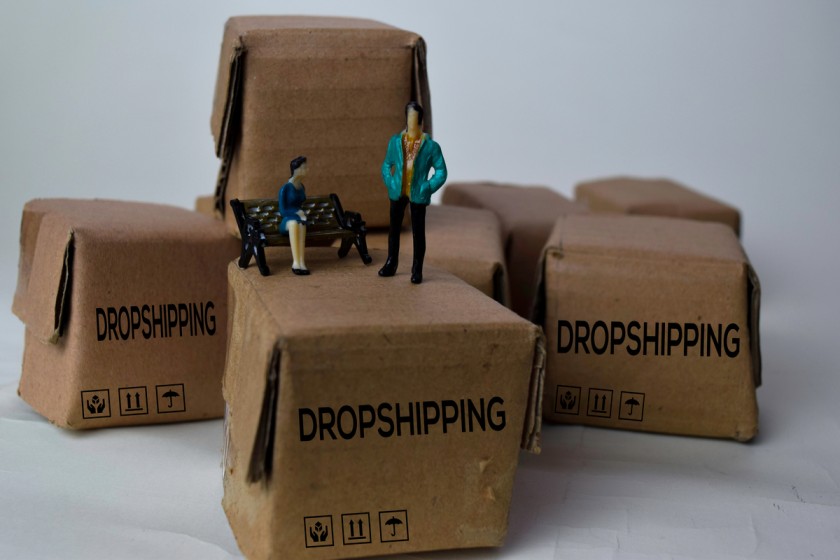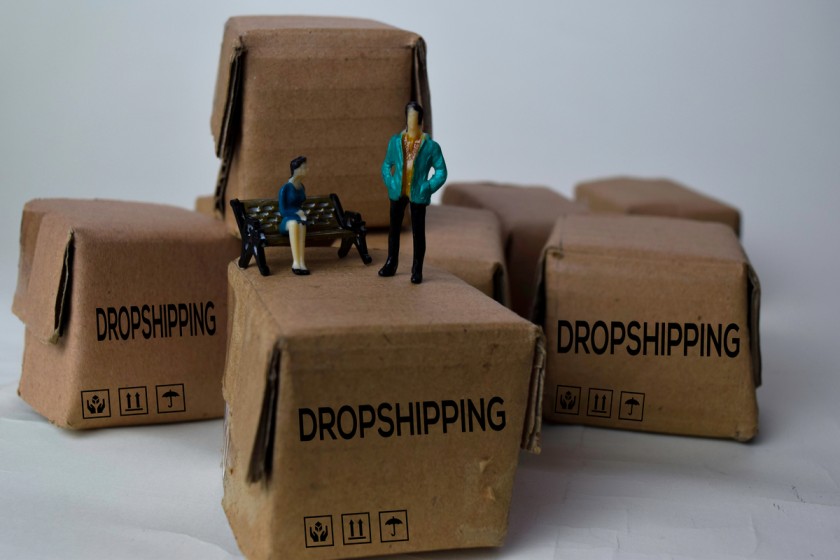Pros And Cons Of Dropshipping Your Fashion Brand



Dropshipping is a retail fulfillment concept where a store does not keep the products in its stock/inventory. Instead, when it sells something, it buys the goods from a third party and ships them to the buyer. As a result, the merchandise is never seen or handled by the merchant.
It is important for a business to understand this strategy and see if it fits in the kind of business they do. Most clothing/apparel or shoe businesses use this approach of dropshipping clothes and create advantageous strategies around it. As a business, one needs to examine the latest fashion trends to see where the best deals may be found. The process has to be research-oriented, and once the decision of adopting a dropshipping strategy is made, the correct retailers must be chosen to be partnered with.
The order process in this model of clothing business includes the following steps:
1. Customer places an order on the merchant’s website, app, or contact number. An email confirming the order is generated automatically by the store software. The payment is also processed post check out.
2. The outlet places the order with its supplier.
3. The wholesale shop ships the order directly to the customer.
4. The outlet alerts the customer about the shipment by sending tracking details and other relevant information via email.
This one-of-a-kind model offers a variety of advantages and disadvantages:
Advantages of Dropshipping Clothes:

Less Capital is Required
The ability to start an online business without having to invest thousands of rupees in inventory upfront is perhaps the largest advantage of dropshipping clothes. Retailers have had to commit a significant amount of capital to the purchase of goods.
With the dropshipping approach, you don't have to buy a product until the transaction has been completed and the buyer has paid for it. It's feasible to establish a successful dropshipping business with very little money if you don't have a lot of up-front inventory and capital.
The Ease and Convenience of Starting the Business
When one does not have to deal with real things, running an ecommerce business is considerably easier. Do not be concerned with any of the following while dropshipping:
1. Taking care of or making payments for the warehouse
2. Putting together and mailing the purchase
3. Inventory tracking for accounting purposes
4. Returns and incoming shipments management
5. Constantly reordering the mixture and keeping track of stock levels
Overhead Costs are Low
The overhead expenditures are cheap since one does not have to worry about procuring goods or keeping a warehouse. In reality, many successful dropshipping clothing businesses are managed from home using a laptop and a monthly budget of less than Rs 5000. These costs will undoubtedly rise as the firm grows, but they will still be affordable as compared to typical enterprises.
Location is Flexible
A dropshipping clothing business may be conducted from almost anywhere that has access to the Internet. One can run and manage the firm as long as there is effective interaction with suppliers and customers.
A Wide Range of Products
One may provide a wide range of things to your potential consumers because one does not have to pre-purchase the stuff being sold. If the suppliers have an item in stock, it can be put up for sale on the website without any prepayments.
Easy to Scale
In a typical business, getting three times the amount of business requires three times the effort. The majority of the work to handle extra orders will be carried out by dropshipping clothes providers, allowing the business to expand with fewer growth pains and less incremental effort. Sales growth will always mean more labor, especially in terms of customer care, but dropshipping firms scale better than regular ecommerce enterprises.
All of these advantages make dropshipping a very appealing strategy for both new and experienced merchants. Unfortunately, it's not all sunshine and rainbows when it comes to dropshipping. All of this comfort and flexibility come at a cost.
Disadvantage of Dropshipping

Low Margins
The main difficulty of operating in a highly competitive dropshipping niche is the low margins. Many merchants may establish business and offer things at rock-bottom rates in an attempt to increase income because it's so easy to get started, and the overhead costs are so low. They've put so little money into the firm, to begin with, that they can afford to run on razor-thin margins.
True, these businesses frequently have bad websites and little (if any) customer service. Customers will still compare their pricing, though. This surge in the ruthless competition will swiftly deplete a niche's profit margin. Fortunately, there are a number of actions that can be taken to alleviate this difficulty, including choosing a niche that is suitable for dropshipping.
Inventory Problems
It's quite easy to keep track of which goods are in and out of stock if there is in-house stocking of all the owned items. However, inventory fluctuates on a regular basis when they are obtained from several warehouses that are simultaneously fulfilling orders for other merchants. While there are ways to better sync the inventory of a business with that of its suppliers, these solutions aren't always flawless, and suppliers don't always support the technology necessary.
Complications in Shipping
Because most drop shippers work with many suppliers, the items on the website will be sourced from a variety of suppliers. The shipping expenses get more complicated as a result of this.
Assume a consumer orders three things, each of which is available only from a different source. This may result in three different shipping charges for each item sent to the client, but it's generally not a good idea to pass this cost on to the consumer, since they'll think the company is drastically overcharging for shipping. Even if one does not wish to pass on these fees, automating these computations might be tricky.
Errors in the Supplier
Have corporations been held liable for anything that was not their fault but for which they had no choice but to take responsibility? Even the best dropshipping companies make mistakes when it comes to fulfilling orders, which they must own up to and apologize for.
And mediocre and low-quality suppliers can frustrate one endlessly with missing things, botched delivery, and poor packaging, all of which can harm the company's reputation.
Is It Worth It?
Before starting one’s own venture, it is important to decide the nature of the business. Some of the examples are starting clothing brands and accordingly evaluating the idea of dropshipping. One may sell apparel from a basic brand or from a designer. The business can focus on a single sort of clothes, such as newborn clothing, or it might have a wide range of styles. Before one chooses a style of clothes, be sure it's in great demand and will provide a healthy profit margin. Consider alternate apparel options for dropship business if the answer is no to both queries.
Dropshipping isn't a flawless, stress-free approach to developing a profitable business, as we have stated. The approach offers several distinct advantages, but it also has a number of inherent difficulties and issues that one must be prepared to solve.
The good news is that most of these issues can be overcome with some careful planning and attention and will not prohibit one from developing a successful, lucrative dropshipping business. There are various techniques that help in understanding the correct strategy for doing a business through dropshipping.
On a concluding note, we at Fashinza help fashion brands and independent designers connect with the most brilliant apparel manufacturers. Whatever your requirements, we’ll help you find a manufacturer that fits in perfectly. Besides, our complete ownership of the process from delivery to design will allow you to rest assured. Visit us here now!



















